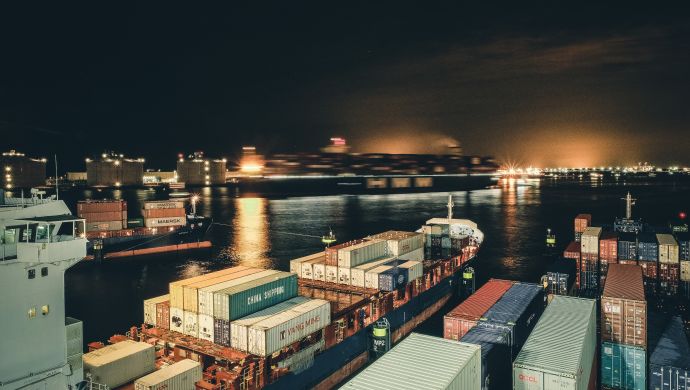
The ongoing COVID-19 pandemic has opened up unique opportunities across many different sectors, from e-commerce to health tech. Among these categories, one that is not discussed as often is the maritime industry.
But before we dig deeper into the available opportunities for maritime tech players, we need to understand the challenges that COVID-19 has brought.
“When COVID-19 hit, the maritime industry faced major challenges in facilitating crew changes due to border restrictions. This meant that seafarers had to stay on board for far longer than the length of their contract which in turn cast a greater spotlight on their conditions at sea,” Dr Mark Lim, Programme Director at PIER71, explains to e27 in an email.
“This accelerated the development of new products and services that enhance seafarer welfare and training. Some of these include remote monitoring of physical and mental health and well-being, digital documentation and virtual reality-based training,” he continues.
Dr Lim further stresses that the maritime industry’s high dependency on manual processes has made “quicker adoption” of tech solutions a necessity during the pandemic, as part of the effort to minimise physical contact.
“Before the pandemic, PIER71 already saw startups using blockchain for applications that verify qualifications of seafarers and transaction records. We anticipate that there will be more opportunities for such maritime tech to digitise and authenticate documents,” he says.
Also Read: How Signal Ventures aims to sail towards new opportunities in global maritime tech scene
In general, the maritime industry is responsible for more than 80 per cent of global trade, with Singapore being home to over 140 international shipping groups and over 5,000 maritime establishments.
Considering this fact alone, it is clear that there are many spaces for startups to innovate in the maritime sector, even beyond the pandemic.
For example, Dr Lim explains that the industry is committed to a 50 per cent reduction in total annual greenhouse gas (GHG) emissions by 2050, as compared with 2008 levels.
“This makes the development of new technology and infrastructure for energy sources such as biofuels, hydrogen and ammonia, as well as more immediate technical and operational measures for decarbonisation, of equal importance,” he says.
Even the recent Suez Canal blockage has highlighted the importance of maritime transport and its impact on the global supply chain.
“In order to minimise disruptions caused by unforeseen circumstances, we need to have better supply chain visibility, efficiency and resilience. Being one of the busiest ports, optimisation of sea space is another critical priority for Singapore.”
Entering the space
Now that the opportunities for startups are clear, Dr Lim centres the discussion on what founders need to know about entering the maritime tech space.
First and foremost, by nature, the maritime industry is a B2B market. This means that founders are likely to uncover opportunities by focusing on working with the corporates rather than inventing their own business models.
“Having said that, the maritime industry is undergoing a major digital transformation and there is a huge opportunity for startups to bring in fresh insights and solutions even if they do not have a maritime background. At PIER71, we encourage start-ups to reimagine their technologies for maritime and have seen many startups adapt their solutions from a different industry successfully,” he elaborates.
With the goal to grow the maritime innovation ecosystem into one that is vibrant and globally recognised, PIER71 has been working closely with Maritime and Port Authority of Singapore (MPA) and NUS Enterprise, the entrepreneurial arm of the National University of Singapore (NUS).
The institution says that over the last three years, they have received more than 500 applications in their Smart Port Challenge from tech startups around the world, with close to 60 startups have benefitted from Smart Port Challenge and PIER71 Accelerate. Twenty-five companies have received MPA grants towards prototype development and pilot projects with PIER71’s maritime corporate partners.
In addition to providing grant support, MPA is working with the Enterprise Singapore to launch the Sea Transport Industry Digitalisation Plan (IDP). This initiative will enable startups to get their solutions accredited and can potentially receive grant support of up to S$30,000.
—
Join our e27 Telegram group, FB community, or like the e27 Facebook page
Image Credit: Andrey Sharpilo on Unsplash
The post Maritime tech founders are more likely to find opportunities working with corporates: Dr Mark Lim of PIER71 appeared first on e27.

